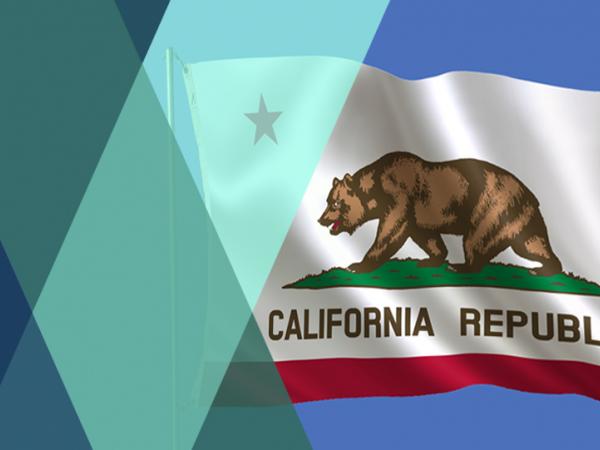
Privacy & Cybersecurity
Viewpoints
Filter by:
Are You Ready? How to Prepare for the End of OCR’s Public Health Emergency HIPAA Enforcement Discretion
May 1, 2023 | Blog | By Dianne Bourque, Lara Compton
In April, 2020, in an effort to facilitate a national pivot to telehealth in light of the COVID-19 Public Health Emergency (PHE), the U.S. Department of Health & Human Services Office for Civil Rights (OCR) announced a policy of Health Insurance Portability and Accountability Act of 1996 (HIPAA) enforcement discretion for regulated health care providers (Covered Entities) implementing communications technologies that weren’t fully compliant with HIPAA or using those technologies in a manner that didn’t comply with HIPAA. Examples of flexibilities included allowing technology providers access to protected health information (PHI) without a HIPAA Business Associate Agreement (BAA). OCR’s enforcement discretion enabled Covered Entities to minimize the need for in-person visits for all kinds of health care services, not just COVID-19 related care. OCR also implemented flexibilities to promote public health during the COVID-19 pandemic; for example, it allowed for Business Associates to share COVID-19 data with government agencies for such purposes without specific authority to do so under BAAs.
OCR Proposes HIPAA Amendments to Protect Reproductive Health Care Information
April 13, 2023 | Blog | By Dianne Bourque, Kate Stewart, Pat Ouellette
In response to concerns about the confidentiality of protected health information (PHI) related to reproductive health care less than one year after Dobbs v. Jackson Women’s Health Organization decision, and the prospect of such PHI being weaponized by states and used against patients, the U.S. Department of Health & Human Services Office for Civil Rights (OCR) has proposed amendments to the HIPAA Privacy Rule to protect that information.
Reporting from the IAPP Global Privacy Summit
April 5, 2023 | | By Michael Katz
Benefits and Legal Risks of Embracing Generative AI Applications
April 5, 2023 | Blog | By Jeremy Glaser, Lorena Niebla
Generative artificial intelligence creates content and work efficiencies but also comes with legal pitfalls. Mintz Venture Capital & Emerging Companies Practice Co-chair Jeremy Glaser and Associate Lorena Niebla look at the technology's potential uses as well as risks related to data privacy, intellectual property, and more.
Federal Trade Commission’s GoodRx Settlement: Not Just a $1.5 Million Penalty
March 8, 2023 | Blog | By Lara Compton, Pat Ouellette
The Federal Trade Commission (FTC) recently kicked off enforcement of its Health Breach Notification Rule (Breach Rule) by taking aim at GoodRx’s use of tracking technologies (e.g. pixels) and the sharing of consumer health data for advertising purposes. According to Samuel Levine, director of the FTC's Bureau of Consumer Protection, the FTC “is serving notice that it will use all of its legal authority to protect American consumers' sensitive data from misuse and illegal exploitation." Bottom line, HIPAA applicability may no longer be as significant of a factor when it comes to the risk presented by collecting, using, disclosing, and maintaining identifiable health information (IHI).
An Overview of Why Class Action Privacy Lawsuits May Have Just Gotten Bigger – Yet Again.
March 1, 2023 | Blog | By Adam B. Korn, Sebastian Navarro, Todd Rosenbaum
Illinois Supreme Court’s Latest BIPA Ruling Increases Risk and Uncertainty as to the Scope of Damages Available Under the Statute
February 28, 2023 | Blog | By Trust D. Kupupika, Kevin McGinty
Just in time for Data Privacy Week: The new Mintz Matrix!
January 27, 2023 | Blog | By Cynthia Larose
FCC Proposes Changes to Its Reporting Requirements for Customer Data Breaches
January 13, 2023 | Blog | By Angela Kung, Jonathan P. Garvin
FCC Proposes Changes to its Reporting Requirements for Customer Data Breaches
January 12, 2023 | Advisory | By Angela Kung, Jonathan P. Garvin
OCR Warns Providers Against Disclosing PHI on Social Media Platforms in Response to Negative Reviews in Settlement with Dental Practice
December 22, 2022 | Blog | By Lara Compton, Kathryn Edgerton, Pat Ouellette
As illustrated by a recent Office for Civil Rights (OCR) settlement with a dental practice, health care entities continue to struggle with how to respond to negative online reviews while maintaining compliance with the HIPAA Privacy Rule. Given the significant reputational harm that negative reviews on Yelp and other social media and public platforms (Platforms) can create, providers may be tempted to respond to such negative comments with patient specifics in an attempt to mitigate harm to their businesses.
Webinar Recording: Navigating Today's Privacy Compliance Landscape
December 14, 2022 | Webinar | By Cynthia Larose
The privacy compliance landscape has changed significantly in 2022. These acronyms have joined the CCPA, HIPAA, and GDPR in the privacy alphabet soup: CPRA, VCDPA, CDPA, CPA, and UCPA. Do you know what they all mean for your company and what they will require in order to be compliant?
New EU-US Data Privacy Framework
December 13, 2022 | Blog
The European Commission has published its long-awaited draft of the new EU-US Data Privacy Framework, available here. The Data Privacy Framework will replace the Privacy Shield decision that was invalidated in July 2020 by the Schrems II decision. President Biden’s recent Executive Order paved the way for the new Data Privacy Framework by creating a significantly more robust right of redress for people in the EU, along with stronger guardrails and greater oversight for US intelligence agencies’ data privacy compliance.
Preparation for 2022 Fiscal Year-End SEC Filings and 2023 Annual Shareholder Meetings
December 7, 2022 | Advisory | By John Condon, Anne Bruno, Melanie Ruthrauff Levy, Jacob Hupart, Cynthia Larose, Breton Leone-Quick, Page R. Hubben
Is Your Website Collecting PHI Under OCR's New Tracking Technologies Bulletin?
December 7, 2022 | Blog | By Dianne Bourque, Lara Compton, Kathryn Edgerton, Cassandra Paolillo, Kate Stewart
Covered Entities and Business Associates should promptly and carefully review their use of online tracking technologies on their websites and mobile apps following a bulletin (Bulletin) published by the U.S. Department of Health and Human Services’ Office for Civil Rights (OCR) last week. The Bulletin addresses multiple facets of compliance with HIPAA when using online third-party tracking technologies (Tracking Technologies). In doing so, OCR significantly expands its interpretation of the definition of Protected Health Information (PHI) to include, in some instances, identifiable information gathered by Tracking Technologies where a user visits a website and does not interact with the entity in any other way. In its Bulletin, OCR interprets the act of an individual visiting a website as evidence of a relationship or anticipated future relationship between the visitor and the entity.
JUST A REMINDER: Refresh Your Standard Contractual Clauses!!
November 29, 2022 | Blog | By Cynthia Larose
If you haven’t already got December 27th on your calendar, it’s the deadline for updating your documentation for transfers of personal data from the European Economic Area (EEA) to other countries – including the United States. Read our blog post regarding this issue and contact the Mintz Privacy Team if you need assistance.
DOJ Charges 10 Defendants for Allegedly Defrauding Public and Private Health Insurers Out of $11.1 Million Through Business Email Compromise Schemes
November 28, 2022 | Blog | By Kathryn Edgerton
This post provides insights and recommendations surrounding the DOJ's charges against 10 defendants involved in business email compromise schemes.
Google Pays Record Privacy Settlement as Lawsuits are Expected to Rise
November 22, 2022 | Blog | By Adam B. Korn, Sebastian Navarro, Todd Rosenbaum
In what is considered the largest privacy-related settlement in history, Google will pay $391.5 million to 40 states to settle an investigation by 40 state attorneys general. The bipartisan coalition of attorneys general alleged that Google misled users into believing that opting out of sharing their location data prevented the company from tracking users’ locations.
NYC Proposes Rules in Advance of 2023 Automated Employment Decision Tools Law
November 4, 2022 | Blog | By Corbin Carter, Michelle Capezza, Evan Piercey
Effective January 1, 2023, New York City employers will be prohibited from using artificial intelligence in employment decision-making processes unless they take a number of specific and affirmative steps prior to doing so, including a bias audit of the tool. These requirements have emerged following the passage of New York City Local Law 144 in December 2021, which creates a specific regime employers must adhere to in order to utilize automated employment decision tools, which the City has referred to as “AEDTs”. Many questions emerged following the passage of Local Law 144 and in response to some of these inquiries, the City’s Department of Consumer and Worker Protection (“DCWP”) has proposed rules that provide some answers, expand upon Local Law 144, and regulate the use of AEDTs. Mintz attorneys Corbin Carter, Michelle Capezza and Evan Piercey analyze and discuss these proposed rules.
SEC Adopts Amendments Requiring Electronic Filing of Forms 144
November 2, 2022 | Alert | By Hannah L. Karraker
Read about how the SEC’s adoption of an electronic filing mandate for certain documents, including all Forms 144 for the sale of securities by US public company issuers, could impact public companies.
Explore Other Viewpoints:
- Data Centers & Digital Infrastructure
- AI: The Washington Report
- Antitrust and Federal Regulation
- Appellate
- Arbitration, Mediation & Alternate Dispute Resolution
- Artificial Intelligence
- Awards
- Bankruptcy & Restructuring
- California Land Use
- Cannabis
- Class Action
- Complex Commercial Litigation
- Construction
- Consumer Product Safety
- Corporate Governance (ESG)
- Cross-Border Asset Recovery
- DEI Legal Developments
- Debt Financing
- Direct Investing (M&A)
- Diversity
- EB-5 Financing
- Education & Nonprofits
- Employment
- EnforceMintz
- Environmental (ESG)
- Environmental Enforcement Defense
- Environmental Law
- Environmental, Social, and Corporate Governance (ESG)
- FDA Regulatory
- FDA in Flux
- False Claims Act
- Federal Circuit Appeals
- Financial Institution Litigation
- Government Law
- Growth Equity
- Health Care
- Health Care Compliance, Fraud and Abuse, & Regulatory Counseling
- Health Care Enforcement & Investigations
- Health Care Transactions
- Health Information Privacy & Security
- IP Due Diligence
- IPRs & Other Post Grant Proceedings
- Immigration
- Impacts of a New US Administration
- Insolvency & Creditor Rights Litigation
- Institutional Investor Class Action Recovery
- Insurance & Financial Services
- Insurance Consulting & Risk Management
- Insurance and Reinsurance Problem-Solving & Dispute Resolution
- Intellectual Property
- Investment Funds
- Israel
- Licensing & Technology Transactions
- Life Sciences
- Litigation & Investigations
- M&A Litigation
- ML Strategies
- Managed Care
- Medicare, Medicaid and Commercial Coverage & Reimbursement
- Mergers & Acquisitions
- Patent Litigation
- Patent Prosecution & Strategic Counseling
- Pharmacy Benefits and PBM Contracting
- Portfolio Companies
- Privacy & Cybersecurity
- Private Client
- Private Equity
- Pro Bono
- Probate & Fiduciary Litigation
- Products Liability & Complex Tort
- Projects & Infrastructure
- Public Finance
- Real Estate Litigation
- Real Estate Transactions
- Real Estate, Construction & Infrastructure
- Retail & Consumer Products
- Securities & Capital Markets
- Securities Litigation
- Social (ESG)
- Special Purpose Acquisition Company (SPACs)
- Sports & Entertainment
- State Attorneys General
- Strategic IP Monetization & Licensing
- Sustainable Energy & Infrastructure
- Tax
- Technology
- Technology, Communications & Media
- Technology, Communications & Media Litigation
- Trade Secrets
- Trademark & Copyright
- Trademark Litigation
- Unified Patent Court (UPC)
- Value-Based Care
- Venture Capital & Emerging Companies
- White Collar Defense & Government Investigations
- Women's Health and Technology











